Do Cats Eat More In The Winter? Should You Change Their Diet?
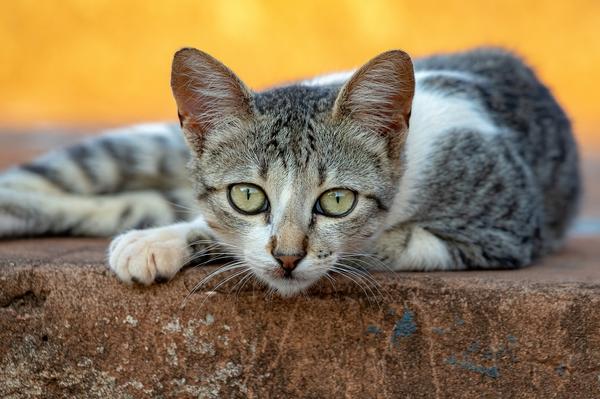
Just imagine:
Your beloved furball curled up by the window, the snow lightly falling outside. 😺
But as the winter months roll in, so does your concern about their health.
Do cats eat more in the winter?
Does their diet change?
Keep reading—I've got the answers you need.
Can Winter Cause Cats to Overeat?
Cats may overeat during winter due to their survival instincts. They stockpile food to stay warm and maintain body temperature. However, overfeeding can lead to obesity and health issues. Adjusting portion sizes for outdoor cats can prevent unhealthy weight loss caused by increased calorie burn.
Winter and cats, what an interesting combination, don't you think?
Let me share something fascinating with you.
It turns out that our fluffy feline companions tend to devour more food when the chilly months arrive.
You might be wondering why cats feel this urge to eat more during winter.
The answer is simple—it's all about survival instincts.
Just like bears getting ready for a long nap or squirrels hoarding nuts, cats also stockpile food to stay warm.
They need those extra calories to maintain their body temperature.
By the way, have you ever heard of Sphynx cats?
These adorable hairless creatures lack insulation, which makes them more vulnerable to the cold.
That's why they experience even greater hunger during winter compared to other cats.
But hear me out—I'm not suggesting that you pour heaps of food into your cat's bowl.
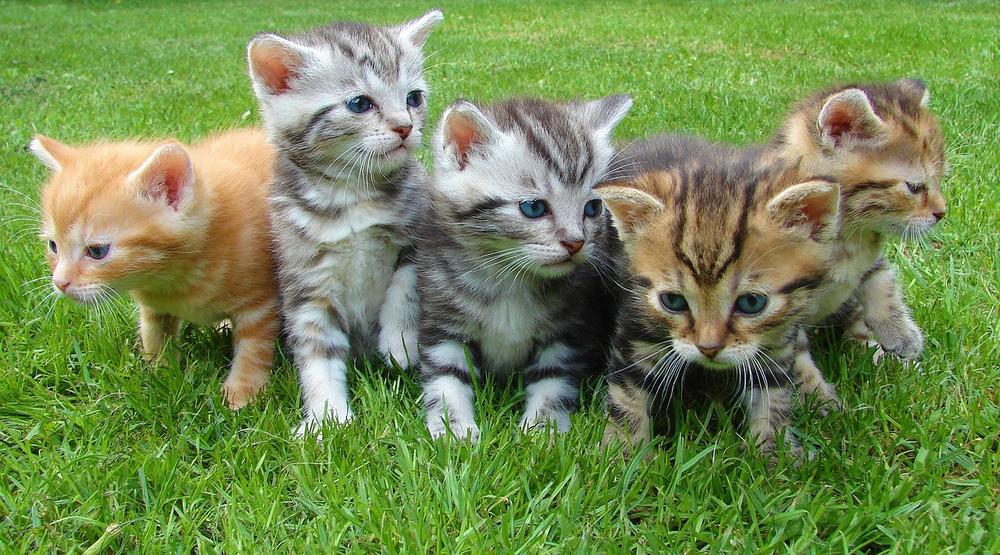
That would lead to disaster. Overfeeding can result in obesity and bring about problems like diabetes and arthritis.
And hey, we care about the well-being of our furry pals, don't we?
Indoor cats usually don't require additional grub in winter, but be on the lookout for natural instincts kicking in. They might still consume more food simply because it feels right to them.
On the flip side, if your kitty is an outdoor explorer, you should adjust their portion sizes accordingly.
Being exposed to the elements burns more calories, so giving them a bit more food can help prevent unhealthy weight loss.
Moderation is key.
Our goal is for your cat to stay happy and healthy throughout winter, without going overboard.
Be mindful of their eating habits and make necessary adjustments.
Winter may increase their appetite, but too much of a good thing isn't always ideal!
In summary, winter + cats = bigger appetites!
Main points I'll expand upon further down this article:
- Cats burn more calories in the winter to stay warm.
- Eating habits can vary, with some cats eating less in winter.
- Ensure a cat's diet includes over 50% protein and up to 20% fats.
- Foods rich in omega-3 fatty acids are beneficial for cats.
- Avoid poor-quality cat food to maintain overall well-being.
- Insulated bowls can prevent canned food from freezing in extreme cold.
- Offer lukewarm treats instead of hot ones to avoid hurting the cat's mouth.
- Cats eat around 15% less food during the summer.
- Cats recognize winter based on temperature fluctuations and sunlight availability.
- Outdoor cats require extra food to replenish energy used to stay warm in winter.
Now, if you're wondering what happens when cats encounter colder weather, well, let me assure you—it's not all about increasing their food intake!
In fact, the cooler temperatures and shorter daylight hours can actually have some interesting effects on our feline friends.
So, what exactly does winter do to their appetites and activity levels?
Let me paint a picture for you...
Does Cold Weather Affect a Cat's Appetite?
Cold weather can decrease a cat's appetite
When it gets cold outside, your furry friend may not feel as hungry. Cats are sensitive to the cooler temperature and their natural metabolism slows down a bit to keep them warm.
So during winter, they might burn more calories just to stay cozy.
Plus, their activity levels tend to drop when it’s chilly, just like how I prefer curling up inside with a comfy blanket rather than going for a jog.
The drop in temperature affects their appetite
You know how sometimes you lose your appetite when it’s cold?
Well, cats can feel the same way.
As the temperature goes from high to low, their hunger decreases. It’s kind of like how our own cravings can diminish on those chilly days.
But don't worry, there are ways we can make sure our feline friends get the nourishment they need during winter.
Provide warming options for your cat
To ensure your cat stays warm and content, consider giving them some cozy comforts.
How about a heated bed or a warm blanket to snuggle up in?
Trust me, your little pal will appreciate it and show you all the love in return.
And now, you may be wondering:
How can you ensure your cat gets the right nutrition during this time?
Well, I have some helpful tips for you!
How Does Winter Affect a Cat's Diet?
During winter, cats require additional calories to keep warm. Adjusting their diet to include over 50% protein and up to 20% fats can help maintain their strength and overall well-being. Omega-3 fatty acids found in tuna, salmon, and sardines are also beneficial. Avoid poor-quality cat food to prevent health issues.
Winter can have more of an impact on your cat's diet than you might imagine.
Let me tell you, outdoor cats need extra calories in the winter to stay warm.
You can give them the boost they need by feeding them cat food that is rich in protein.
I guarantee it will hit the spot.
You know what?
During winter, your furry friend's metabolism and appetite can change because of the shorter days and colder weather.
So here's what you can do, my friend.
You have to make some adjustments to their diet.
Here's the deal: during winter, your cat's meals should consist of over 50% protein and up to 20% fats.
This will help them stay strong and in top shape.
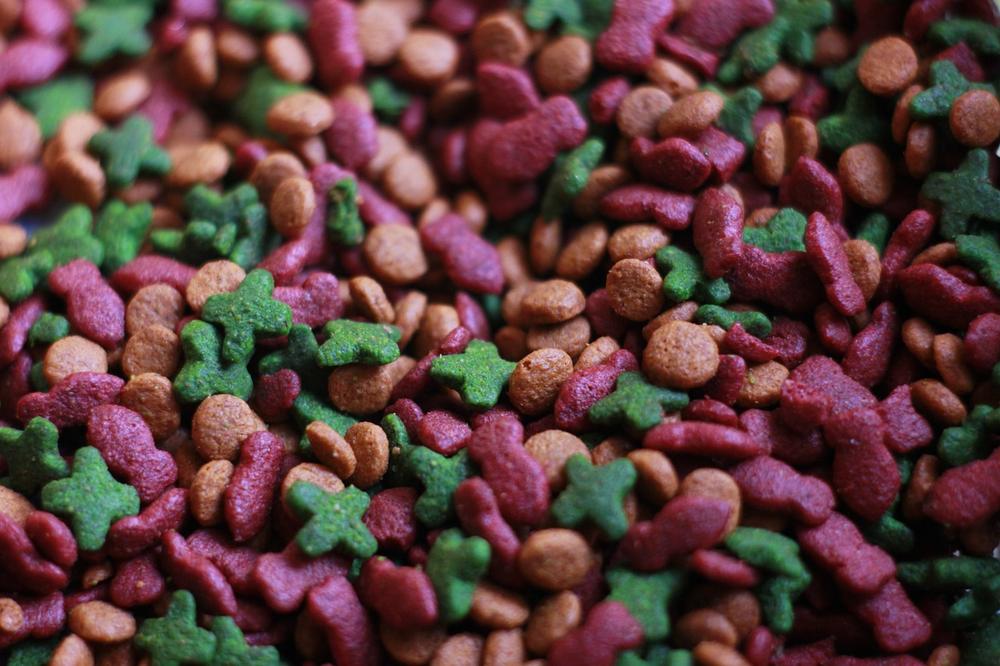
And don't forget about those omega-3 fatty acids.
They make a huge difference, let me tell ya.
Tuna, salmon, and sardines are all packed with omega-3s.
Give them a shot, I promise your furry pal will be grateful.
Now, listen up because this is crucial.
Avoid poor-quality cat food during the winter.
It can cause all sorts of problems, and nobody wants that.
We want our kitties to be happy and healthy, don't we?
To ensure everything runs smoothly and keep your fluffy buddy in good health, feed them a diet high in protein.
It's the secret ingredient for a strong immune system and overall well-being.
And let me tell you, that's not the only way winter affects a cat's diet!
Impact of Winter Weather on a Cat's Food Intake
During winter, outdoor cats may not eat as much due to snowfall and freezing temperatures.
But here's the thing...
When it gets extremely cold, canned food could freeze.
This poses a challenge when it comes to feeding your outdoor cat.
Don't worry though!
An easy solution is to use insulated bowls.
These bowls protect the food from freezing.
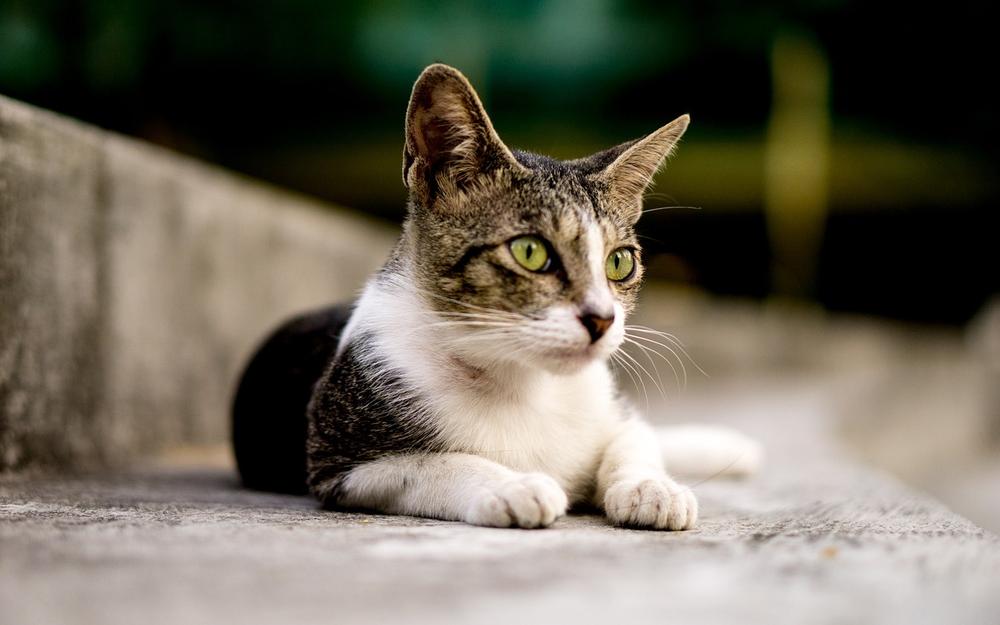
And please remember, consider your cat's comfort and safety too.
Hot treats can harm their delicate mouth, so be mindful of the food's temperature.
Now, let me tell you something interesting...
Studies show that cats eat about 15% less during summer.
These studies involved cats living in southern France, where they had the freedom to play outside all year.
Experts even used computer modeling to analyze how the climate affected their eating habits.
So, keep an eye on your cat's appetite in winter and adjust accordingly.
But, did you know that there are certain foods that can pose risks to your furry friend's health? That's why I highly recommend checking out Can Cats Eat Oreos, where I dive into the potential risks associated with feeding your cat this popular treat.
What Factors Influence a Cat's Eating Habits in Winter?
What factors influence a cat's eating habits in winter?
Let's dive into some useful tips and information:
- Age plays a role - Older cats may have different dietary requirements compared to younger cats during winter due to changes in metabolism and overall health.
- Sunlight availability - In response to prolonged periods without sunlight, cats instinctively increase their food consumption as they recognize the arrival of winter based on temperature fluctuations and sunlight availability.
- Energy expenditure - The cat's energy expenditure for maintaining warmth in winter and the inclination to rest more during hot summer days contribute to changes in activity levels throughout the year.
- Research focus - Research on seasonal food intake has primarily focused on farm animals such as dairy cows, aiming to enhance milk production. However, adjusting the diet of older cats to accommodate these changes in metabolism and activity levels can be beneficial.
- Metabolism and activity levels - Understanding the specific needs of an individual cat, considering their age, breed, and overall health is essential in providing the right nutrition during winter.
Ensuring your furry companion remains healthy and content during the winter season can be achieved by considering these factors. 😺
Pay attention, because here's the deal: Further down the blog post, I'll be discussing whether cats have a seasonal increase in food consumption. So, keep reading to uncover more insights into this fascinating topic.
Now, you might be wondering...
How do I determine the appropriate calorie intake for my cat during winter?
Well, in the next section, we will explore practical tips and guidelines to help you assess your cat's diet and adjust their calorie needs accordingly.
Stay tuned to learn how to keep your furry friend healthy and warm during the winter months:
Do Cats Need More Calories in the Winter?
Winter.
Ah, that magical time of year when the chill sets in and even your cat is searching for some extra warmth.
But here's something you may not know:
The size and age of a cat can influence their individual calorie needs during winter.
Yes, it's true!
When those temperatures start to plummet, cats need more energy to keep themselves warm - especially if they venture outside. Exploring in the cold weather burns more calories, and we all know cats love their outdoor adventures.
So, what does this mean for you and your feline friend?
It means you should assess each cat's diet and adjust their calorie intake accordingly. Providing them with additional food can help keep them healthy and warm.
Just make sure you're offering wholesome options and not just plumping them up with empty calories (they still need their nutrients, after all).
Here's another little nugget of wisdom:
In the summer, your furry friend doesn't need quite as much fuel.
They spend more time napping and lounging around, enjoying those lazy sunny days.
So, be mindful of their changing energy requirements throughout the year.
Friends: take care of your cats like you would yourself.
Feed them well, provide plenty of warmth, and cherish those winter moments together.
But did you know that despite the decreased physical activity and increased indoor time, some cats actually experience an increase in appetite during the winter season?
Bet you didn't see that coming!
In fact, researchers at the University of Liverpool have found that cats have a 15% increase in appetite during this chilly time.
So, how can you stimulate their appetite?
Let me share some stimulating activities for your indoor kitties!
Do Cats Experience Changes in Appetite During Winter?
Cats may have a 15% increase or decrease in appetite during winter. While some cats eat more to generate heat, others eat less due to reduced activity. Providing stimulating activities and monitoring weight and behavior are crucial during this season.
Some cats may experience changes in appetite during winter.
You might think they eat more because the cold weather makes them crave food.
Turns out, our feline friends actually have a 15% increase in appetite during winter. Yup, you heard that right!
According to researchers at the University of Liverpool, cats tend to eat more when the mercury drops.
It's probably because their bodies use more energy to keep warm.
But here's the catch:
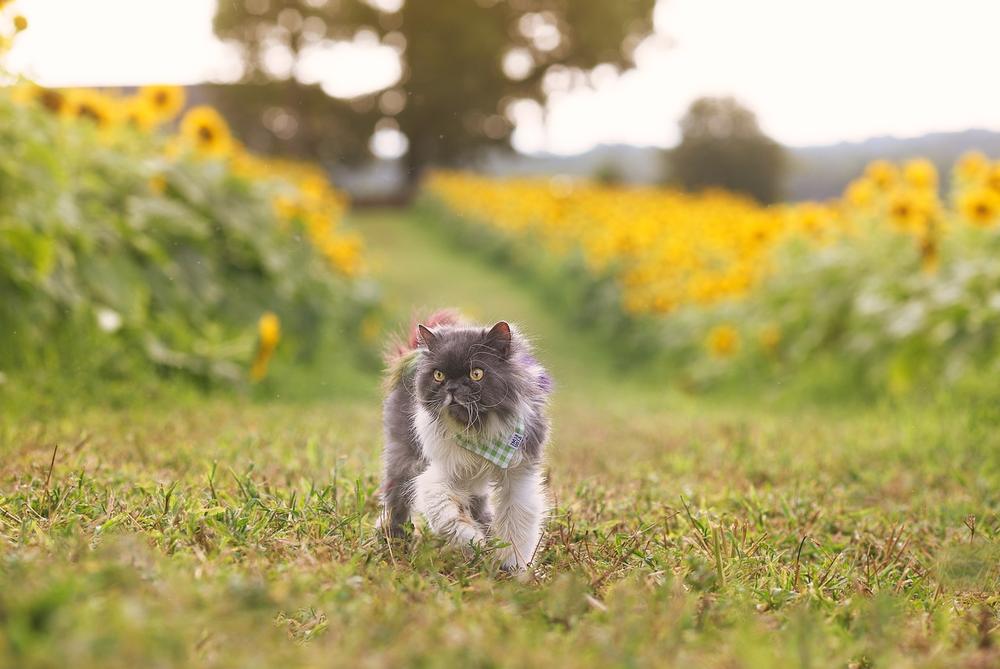
Other cats might actually eat less.
Reduced physical activity and more time spent indoors can make some cats lose interest in food.
They just lay around and nap all day, cozy and lazy.
So what can you do?
To stimulate your cat's appetite during winter, try providing stimulating activities for indoor cats. That could be interactive toys or treat puzzles to get them moving and engaged.
It's always best to keep an eye on your cat's weight and behavior.
If you notice any significant changes, it's worth talking to your vet.
Every cat is unique, so you need to pay attention to their individual needs.
Does Winter Impact a Cat's Metabolism and Energy Needs?
Cats' metabolism changes during winter, possibly leading to higher energy needs. You can provide enough nutrition by controlling their meal portions or adjusting the frequency of meals.
However, indoor cats living in warm, cozy spaces may not experience the same metabolic boost during winter.
Do Cats Have a Seasonal Increase in Food Consumption?
Cats tend to eat more during winter, possibly due to the cold weather or the desire for extra comfort. However, you have to monitor their weight and avoid overfeeding. Research shows that cats have a seasonal craving for more food, so moderation is key to maintaining their health and shape.
Cats are fascinating creatures, aren't they?
In the winter, you might notice that some cats tend to eat a little more. Perhaps it's the cold weather that increases their appetite.
Or maybe, just like us, they enjoy snuggling up and indulging in some extra kibble.
But here's something vital to consider...
You need to keep a close watch on your furry friend's weight.
It's crucial not to unknowingly overfeed them.
After all, obesity can lead to various health problems for cats, just as it does for humans.
And trust me, nobody wants that.
Interesting research conducted on 38 colony cats over four years revealed a fascinating discovery:
During the colder months, cats tend to consume more food.
It's almost like a seasonal craving, isn't it?
So, pay attention.
Make sure you regularly monitor your cat's weight and adjust their food intake accordingly.
You should avoid allowing your feline friend to overeat.
Moderation is key!
On top of that, let's not forget that cats can be finicky eaters at times. So if your kitty doesn't finish their meal, don't force them.
Stick to their regular portion size.
By doing so, you'll ensure that your curious pet maintains their perfect shape, both physically and purrsonality-wise!
And speaking of health problems, did you know that indoor cats are more likely to gain weight during the winter?
But don't worry, there are ways to combat this!
Let me tell you how you can keep your furry friend in shape and prevent any unwanted extra pounds...
Winter: A Time for Cat Weight Gain
Is winter a time for cat weight gain?
Let's dig into the details:
- Indoor cats are at a higher risk of gaining weight during winter due to limited opportunities for physical activity.
- Unlike hibernating animals, cats don't store fat for winter. However, they may experience increased hunger during this season.
- It is important for owners of indoor cats to monitor their food intake and avoid overfeeding to prevent excessive weight gain.
- To keep indoor cats active and healthy, engage them in interactive play sessions that simulate hunting behavior.
- Providing enrichment activities such as puzzle toys or treat dispensers can help prevent boredom and keep cats physically and mentally stimulated.
- Consider creating vertical spaces with climbing trees or shelves to encourage cats to jump and climb, providing them with exercise opportunities.
- Ensure your cat has access to fresh water at all times and provide a balanced diet tailored for their age and activity level.
- Consult with your veterinarian to determine the appropriate portions and feeding schedule for your indoor cat based on their specific needs.
- Regularly monitor your cat's weight and body condition score to catch any signs of excessive weight gain early on.
- If you notice your cat gaining weight despite your efforts, consult with your vet to rule out any underlying health issues or explore additional strategies to manage their weight.
With these tips, you can help your indoor cats stay fit and healthy even during the winter months. Remember, moderation is key!
And that wraps up today's article.
Before you leave, can I ask you something? Was my blog post useful for you? If it was, I would greatly appreciate it if you could share it with your loved ones. With just a simple click on any of the social media sharing icons, you can instantly spread the word. Thank you so much!
Talk soon,
-Sarah Davis